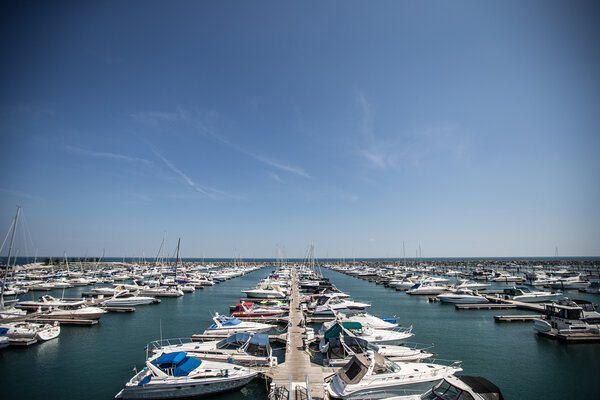Pre-Departure Checklist
Click here for a printable version of this checklist
Life Jackets
- Have at least one Coast Guard-approved life jacket per passenger and a minimum of two on board.
- An additional throwable device is required if the vessel is more than 16 feet long.
- Explain the location and use of all life jackets to passengers and crew that may be new to the vessel.
Sound Producing Devices
- Have a horn capable of producing a four-second blast audible for at least 1/2 mile on board.
- If you use portable air horn, have a spare can of air or an alternate device.
- Attach a whistle to each life jacket.
Lights and Shapes
- Have all navigation lights as required for your boat.
- Make sure all instrument lights are working.
- If you intend to engage in a recreational boating activity that requires a day-shape, have the required shapes.
- Have aboard a flashlight and spare batteries.
Distress Signals
- Make flares, day signals, etc., accessible and ensure they are stored in a dry location.
- Inform the crew and passengers of their location and safety rules for proper usage.
Tools and Spares
- Carry a basic toolbox with tools appropriate for your boat.
- Carry a box of spares including fuel filter, light bulbs, head parts, through-hull plugs, etc.
- Check to ensure you have a standard first-aid kit onboard
Fuel and Oil
- Top off your fuel tanks.
- If you can't, have enough fuel to provide a reasonable margin of safety for your return.
- Check the engine oil and coolant levels.
Fire Extinguishers
- Carry at least one fire extinguisher and make sure it is accessible. Make sure you have at least the number required by Coast Guard rules.
- Check to be sure mounts are secure and functional before departure.
- Take the time to point out locations to passengers and crew.
Ventilation
- On any powered vessel or auxiliary powered sailboat, or vessels using LPG for cooking or heat, check that all interior spaces are well ventilated before departure.
- If fuel smells are detected before ventilating, check after running the blowers for several minutes before starting.
- If odor persists, shut down the engine and look for the source of the leak.
- For any enclosed or semi-enclosed area, ensure you have at least one properly installed and working carbon monoxide detector
Bilges
- Check to be sure bilges are reasonably dry and that pumps are not running excessively.
- Clean up any spilled oil or waste in bilges to prevent overboard discharge.
Weather Forecast
- Always check the weather forecast before boating.
- Have a radio on board to receive weather updates.
Battery Care
- If you have a dual charging system, make sure the selector switch in the proper position.
- Make sure the power is on to the entire vessel.
- Have aboard spare batteries for accessories such as your handheld radio, flashlight, portable navigational aid, etc.
- If the batteries are rechargeable, make sure they're charged.
Docking and Anchoring Tips
- Have at least one anchor set up and bent-on to your anchor line.
- Carry two or three extra dock lines in case you encounter unusual conditions dockside.
- Visually inspect the lines you use for chafe or wear.
- Carry at least two fenders on-board for docking or towing if required.
Content provided by boatsafe.com
